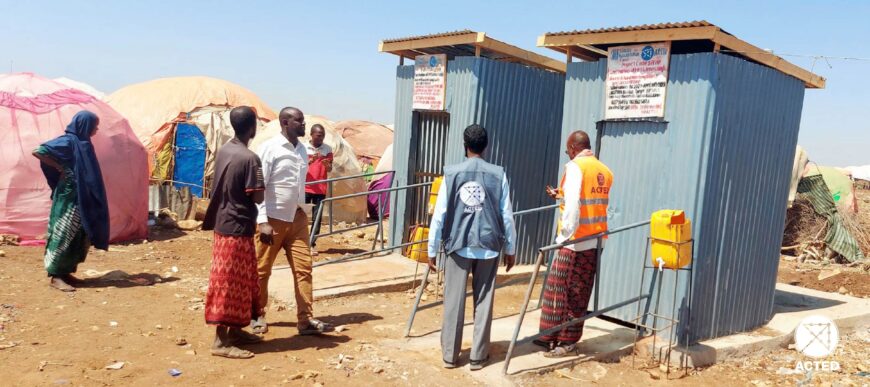As of today, only half of Somalia's population has access to clean water, leaving 8 million people facing daily water insecurity. This dire situation has led to over 20,000 cases of waterborne diseases. This number will continue to rise unless both short-term and long-term solutions are urgently implemented.
Several factors have hindered the achievement of Water, Sanitation, and Hygiene (WASH) milestones in Somalia. Unregulated private water vendors drive up prices, making clean water unaffordable for many families who are forced to collect water from distant, unsafe wells. Additionally, open defecation is widespread, with 28% of the population lacking access to latrines, increasing the risk of preventable diseases like diarrhea, cholera, and respiratory infections.
The weak surveillance systems in place mean that many waterborne disease cases likely go unreported. For example, in 2022, the World Health Organization treated over 130,000 cases of acute diarrheal diseases, including 15,600 suspected cholera cases – the highest in five years, yet most cases went unreported and unaddressed.
Bringing about sanitation improvement within camps and host communities
Women and girls are disproportionately burdened with the task of fetching water, a task fraught with protection issues as they often face conflicts and the risk of physical or sexual assault at water sources. This responsibility also limits their access to education and time for household chores.
To promote good hygiene practices, Acted is providing emergency WASH assistance to drought-displaced families, offering a lifeline to communities in dire need of water and sanitation facilities. This project, funded by the Somalia Humanitarian Fund, has resulted in upgraded boreholes, flood-resistant latrines with handwashing stations, and 108 solar lighting installations in 27 IDP (Internally Displaced Persons) sites in Baidoa, Somalia. Acted has also built 194 gender-separated single latrines and 22 latrines for persons with disabilities, distributed 2,070 hygiene kits, and conducted household-level hygiene promotion sessions.
During a sustained three-month effort, more than 10,000 households received water through consistent water trucking, alleviating the burden on those affected by the drought, which had dried up many of their water sources. In total, 24,174 people benefited from this intervention.

Khadija Hassan*, a mother of 7 is living in Arsham IDP camp in Baidoa District. She fled from Rabdhure, Bakool region because of the raving drought that engulfed the region and her village also experienced numerous conflicts.
This IDP camp had no single latrine and it was normal for the residents to defecate in the open. Like many other mothers who experienced similar problems that also forced them to move away from their homes, Khadija states that the camp did not have any humanitarian services including latrines.
“Acted has now constructed 4 latrines in our camp, fitted them with hand washing facilities and solar lights” she said. Khadija notes that the IDPs living standards have drastically improved and their hygiene status continues changing for the better every day with the elimination of open defecation within the camp.
*The name has been changed to protect the identity of the beneficiary.
In the past, women faced sexual exploitation and other forms of gender-based violence at night. This is because it was so dark. Now that we have the solar lights installed, things have changed for the better. We can see better and feel safe.
To ensure sustainability, Acted trained community members who participated in forming hygiene committees on good hygiene practices to ensure a better use of the constructed latrines. When handed over to the community after the end of the project, the committee will be responsible in ensuring that the latrines remain clean and usable for the future.